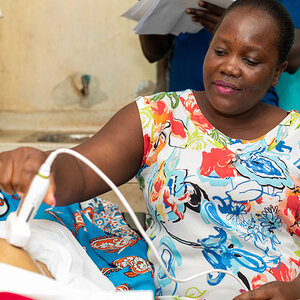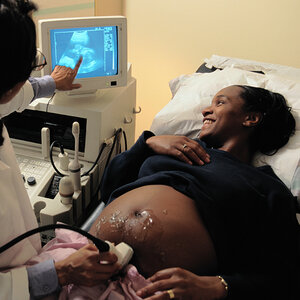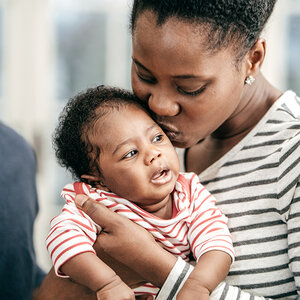Gates Foundation awards nearly $45 million for AI-powered ultrasound

Royal Philips has announced approximately $44.6 million in second-round funding from the Bill & Melinda Gates Foundation to accelerate global adoption of AI algorithms on the company’s Lumify Handheld Ultrasound.
The latest commitment boosts the Gates Foundation’s total commitment to Philips to $60 million. In 2021, the foundation awarded $15.4 million to develop the application suite on Lumify, which is in widespread use in community-based mother-and-child care programs around the world. According to Philips, by using AI to simplify key measurements to identify abnormalities during pregnancy, training time to use the ultrasound system can be reduced from weeks to just hours, significantly expanding the pool of frontline health workers who can learn to use the technology and integrate it into routine care. The 2021 funding has led to positive results in Kenya, where the technology has helped drive better-informed decision-making when triaging pregnant women in underserved rural communities. The new funding will support the deployment of the AI-assisted tool to underserved communities globally.
Earlier this year, the foundation awarded a similar grant to GE HealthCare to create user-friendly, AI-assisted ultrasound imaging auto-assessment tools for use in low- and middle-income countries. “One of our key areas of focus is to build partnerships that bring together resources, expertise, and vision—working with organizations around the world to identify issues, find answers, and drive change,” said Gates Foundation director of Maternal, Newborn & Child Health Discovery & Tools Rasa Izadnegahdar.
“The prototype identifies six critical parameters for high-risk assessments to help improve the health of both mom and baby, such as gestational age and placenta location,” said Matthijs Groot Wassink, general manager for Point of Care and Obstetric Ultrasound at Philips. “With the automated AI capabilities built into Philips Lumify, frontline workers can identify abnormalities earlier, helping to increase confidence and comfort of the mother in any decisions or care pathways she decides to pursue or not.”
(Photo credit: Royal Philips)







